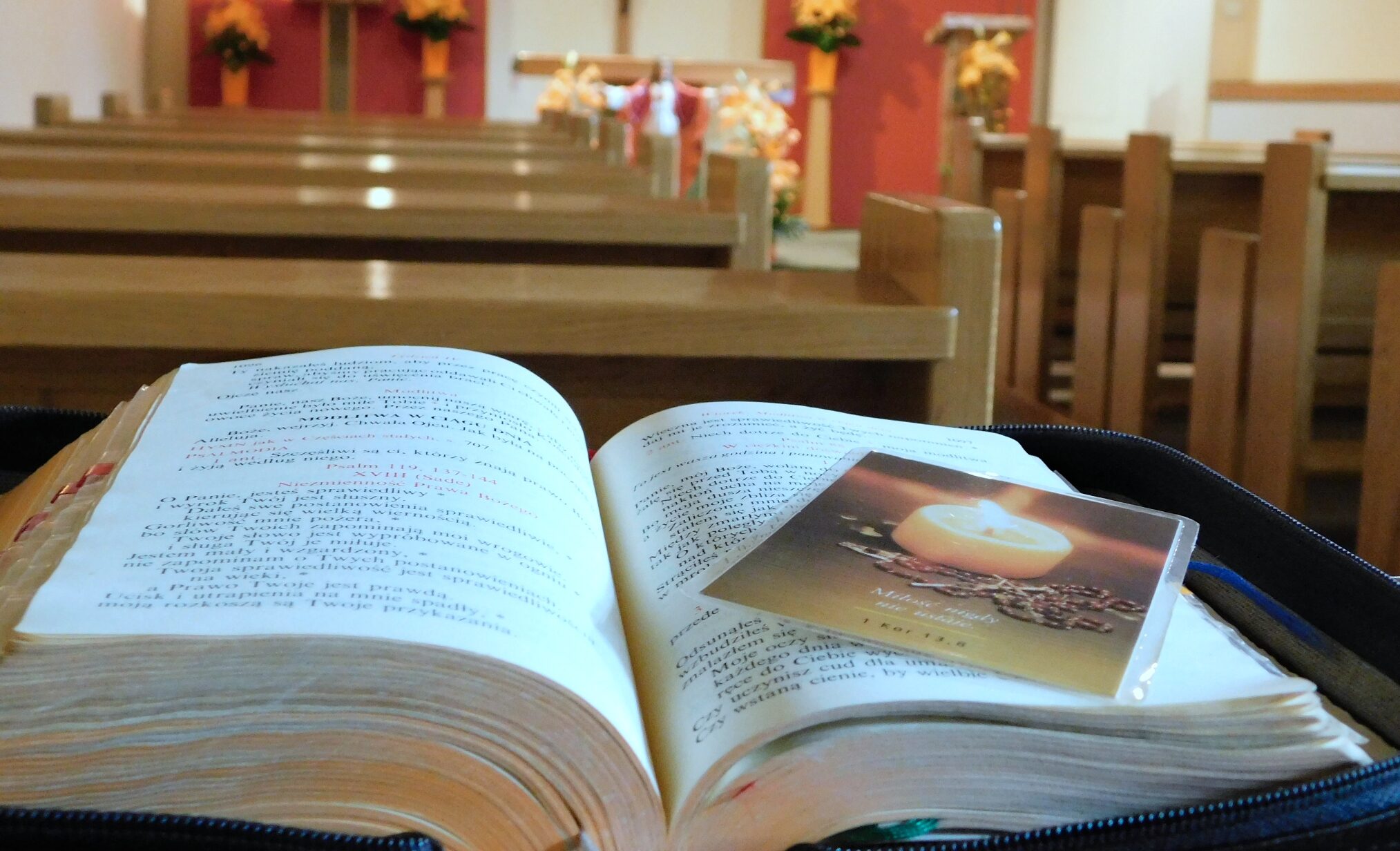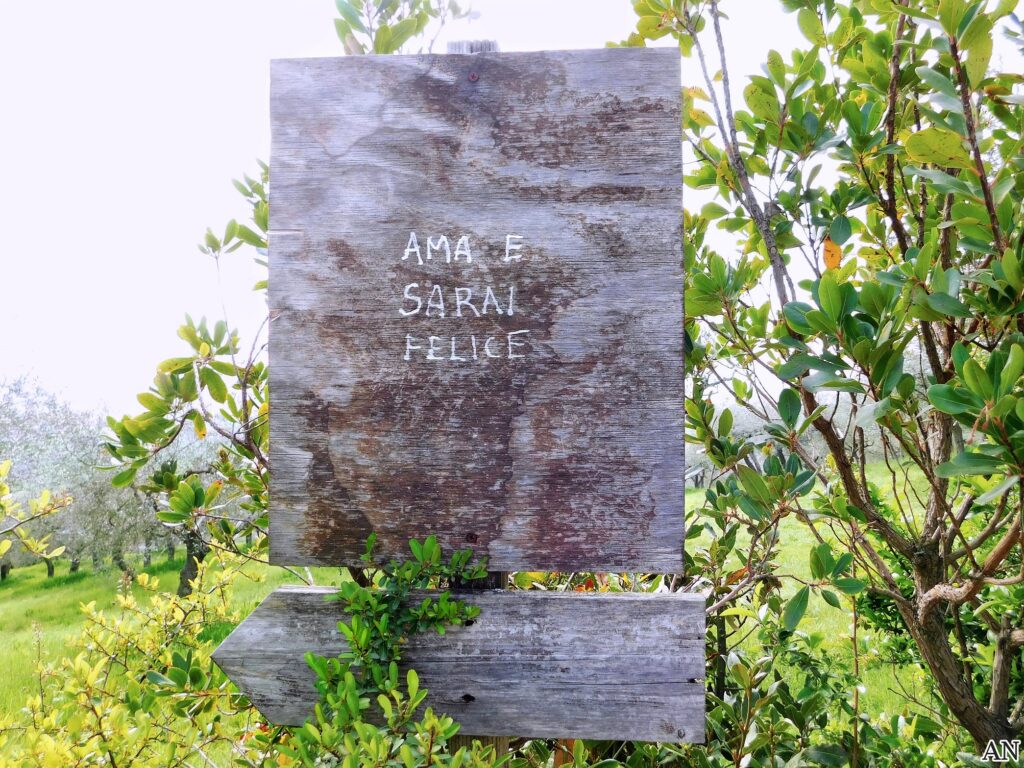#TomorrowIsSunday (EN+ES) | How can God dwell in us?


Listening to the Word of God_PhotoCredit Sr Amata CSFN
Sixth Sunday of Easter, Year C
Sunday, May 22, 2022
Gospel of John 14: 23-29
EN https://bible.usccb.org/bible/readings/052222.cfm
You can download the commentary on the Gospel and beautiful photos:
https://www.academia.edu/79589071/How_can_God_dwell_in_us?source=swp_share
*
VI Domingo de Pascua, Año C
Domingo, 22 de mayo del 2022
Evangelio de Juan 14: 23-29
ES https://bible.usccb.org/es/bible/lecturas/052222.cfm
1 Human being is God’s dwelling place?
Heaven is not capable of housing God, let alone a person. It is impossible. Yet, God Himself transcends this limit. Jesus says in the Gospel that He can dwell permanently in a human being. There are only certain conditions for this.
2 Key Words
Whoever loves me will keep my word, and my Father will love him,
and we will come to him and make our dwelling with him.
The original Greek version of the Gospel uses the word “mone” which means not just a temporary place to stay, but to dwell permanently. God wants to be bound to man forever. He wants nothing to break this bond of love. However, He gives each person free will.
There are two conditions for God to dwell in me: love and keeping His teachings. God Himself gives us the way how to love God and people in His Word, especially in the commandment of love and the 10 Commandments. Keeping God’s teaching means paying attention to what God says in the Gospel and the Church and taking God’s teaching to heart.
Love and obedience to God open the door wide for God to dwell in us permanently.
The Advocate (The Paraclete), the Holy Spirit,
whom the Father will send in my name,
will teach you everything
Jesus never leaves us alone, even when we cannot see or feel Him. God the Father sends us the Holy Spirit in Jesus’ name. Jesus calls the Holy Spirit using the Greek word “Parakaleo,” which literally means someone who speaks for someone else. The Holy Spirit speaks to us on behalf of God and he speaks on our behalf to God.
The Paraclete, the Comforter does not just bring emotional comfort, but accompanies us constantly, encourages us to persevere in our faith, and defends within us the truth of the Gospel and the certainty that Jesus lives. The Holy Spirit is present and active in the community of the Church. He constantly reminds us of the words of Jesus.
Peace I leave with you; my peace I give to you.
We hear this phrase from the Gospel during Mass. Jesus reminds us before receiving Holy Communion that he wants to give us his peace. Many things in this world will want to tear down our peace. Jesus says that this peace that he gives does not depend on external conditions. No one and nothing can take it away from us. The Holy Spirit will defend the peace within us.
3 Today
God desires to dwell in me forever. What is my reaction to this desire of God? What prevents me from opening the doors of my life wide to God? I will ask the Holy Spirit to teach me to listen to Jesus and not to be afraid to open wide my heart and life for Him.

Love and be happy_Road to San Damiano-Assisi_PhotoCredit Sr Amata CSFN
*
1 ¿Es el hombre la morada de Dios?
El cielo no es capaz de albergar a Dios, y mucho menos al hombre. Es imposible. Sin embargo, Dios mismo trasciende este límite. Jesús dice en el Evangelio que puede habitar permanentemente en el hombre. Sólo hay ciertas condiciones.
2 Palabras clave
«El que me ama, cumplirá mi palabra y mi Padre lo amará y haremos en él nuestra morada.»
El griego original del Evangelio utiliza la palabra «mone», que significa no sólo un lugar de estancia temporal, sino habitar permanentemente. Dios quiere unirse al hombre para siempre. No quiere que nada rompa este vínculo de amor. Sin embargo, Él deja a cada persona libre albedrío.
Hay dos condiciones para que Dios habite en mí: el amor y guardar sus enseñanzas. Dios mismo nos da la receta de cómo amar a Dios y a las personas en Su Palabra, especialmente en el mandamiento del amor y en los 10 mandamientos de Dios. Guardar la enseñanza de Dios significa prestar atención a lo que Dios dice en el Evangelio y en la Iglesia y conservar la enseñanza de Dios en el corazón.
El amor y la obediencia a Dios abren la puerta de par en par para que Dios habite en nosotros permanentemente.
«El Paráclito, el Espíritu Santo que mi Padre les enviará en mi nombre, les enseñará todas las cosas… »
Jesús nunca nos deja solos, aunque no podamos verlo ni sentirlo. Dios Padre nos envía el Espíritu Santo en nombre de Jesús. Jesús lo llama con la palabra griega «Parakaleo», que literalmente significa alguien que habla en nombre de otro. El Espíritu Santo nos habla en nombre de Dios y habla en nuestro nombre a Dios.
El Paráclito, el Consolador, no sólo trae consuelo emocional, sino que nos acompaña constantemente, nos anima a perseverar en nuestra fe, defiende en nosotros la verdad del Evangelio y la certeza de que Jesús vive. El Espíritu Santo está presente y activo en la comunidad de la Iglesia. Nos recuerda constantemente las palabras de Jesús.
«La paz les dejo, mi paz les doy. »
Escuchamos esta frase del evangelio durante la misa. Jesús nos recuerda antes de recibir la Sagrada Comunión que quiere darnos su paz. Muchas cosas en este mundo querrán derribar nuestra paz. Jesús dice que esta paz que él da no depende de condiciones externas. Nadie ni nada puede quitárnosla. El Espíritu Santo defenderá la paz en nuestro interior.
3 Hoy
Dios desea habitar en mí para siempre. ¿Cuál es mi reacción a este deseo de Dios? ¿Qué me impide abrir de par en par las puertas de mi vida a Dios? Pediré al Espíritu Santo que me enseñe a escuchar a Jesús y a no tener miedo de abrir de par en par mi corazón y mi vida para Él.
You can read also:
#TomorrowIsSunday (EN+ES) | What kind of love is best? >>>
#TomorrowIsSunday (EN + ES) | How to hear Jesus? >>>
#TomorrowIsSunday (EN+ES) | What rebuilds a relationship with Jesus? >>>
#TomorrowIsSunday (EN+ES) | Why is this Sunday Compared to a “Second Baptism”? >>>
#TomorrowIsSunday (EN+ES) | Jesus’ greatest miracle >>>
#TomorrowIsSunday | What does Jesus write in the sand? >>>
#TomorrowIsSunday (EN+ES) | What is the scandal of mercy? >>>
#TomorrowIsSunday (EN+ES) | Why Does Jesus Pray? >>>
#TomorrowIsSunday (EN+ES) | What Should One Do when Tempted? >>>
#TomorrowIsSunday (EN+ES) | What Do a Hypocrite and a Mask Have in Common? >>>
#TomorrowIsSunday (EN+ES) | Why should we love our enemies? >>>
#TomorrowIsSunday (EN+ES) | Jesus’ Counsel Regarding Hatred Prompted by Faith >>>
#TomorrowIsSunday (En+ES) | In the Bible, what does it mean to be “fisher of men”? >>>
#TomorrowIsSunday (EN+ES) | Why is Nazareth a Tragic City? >>>
#TomorrowIsSunday (EN+ES) | Who is Theophilus for whom Luke wrote the Gospel? >>>



Dodaj komentarz